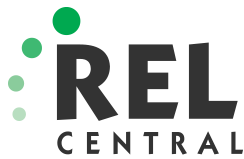The Regional Educational Laboratory (REL) Central works closely with state and local education agencies across a seven-state region to support their work and help them develop solutions to their education challenges. That support comes in the form of applied research; dissemination of actionable, credible, and up-to-date research evidence; and, more often than not, training, coaching, and technical support (TCTS).
Over the past year, REL Central has worked with education agencies to develop partnerships and alliances made up of education leaders from the central region. Through these partnerships and alliances, REL Central supports more than 30 TCTS projects that help our partners build individual and organizational capacity to develop and use research. In conducting these projects, we further build the capacity of researchers and practitioners to work in partnership together, and we encourage capacity growth within the education research sector through the modeling of best practices and the sharing of our work.
Building Individual Capacity
Education agency staff have various levels of knowledge and skills when it comes to the use of education research. REL Central helps individuals build those skills through trainings and coaching so that they can better understand and use research findings in education decision-making. While individual members benefit from this focus, agencies also may benefit when staff begin applying new skills and knowledge to agency initiatives.
The Colorado School Improvement Research Partnership formed last year between the Colorado Department of Education (CDE) and REL Central. CDE supports school districts to select and implement school turnaround efforts, and provides needed tools to evaluate programs and make cost-effective decisions. Through this partnership, CDE, supported by REL Central, developed a five-module training program that helps CDE staff better understand and use evaluation. The project has the potential to offer far-reaching individual capacity growth as CDE plans to use the modules with staff so that they can support Colorado school and district leaders in evaluating their own local programs.
Building Organizational Capacity
REL Central’s organizational capacity-building efforts often come in the form of in-depth training, coaching, and technical support centered on helping education agencies use research to develop and implement models, routines, and tools to evaluate their policies and practices. This type of capacity building is designed to bolster the use of data in agencies even as their staff may change.
For example, prior to 2017, the North Dakota Department of Public Instruction’s (NDDPI) annual Native American Needs Assessment consisted of three questions and was only distributed to administrators of schools with large numbers of Native students. NDDPI uses the needs assessment to gather information on the needs of the Native schools and develop an action plan to address school needs based on the results. Through the American Indian Education Research Alliance, REL Central supported NDDPI to develop a more robust needs assessment that would increase its organizational capacity to collect and use data. Enhancements included the expansion of the needs assessment survey to include teachers and paraprofessionals and the addition of new culturally and occupationally relevant questions. Changes to the needs assessment survey drew on feedback from North Dakota Native American educators. Supported by REL Central, stakeholders reviewed survey areas to develop evidence-based questions, building their capacity to collect more useful data for years to come.
Building Partnership Capacity
Finally, REL Central is helping to build the capacity of our education agency partners to engage in researcher-practitioner partnerships. The learning in these partnerships is bidirectional. Researchers provide educators with a research-based framework to discuss and determine agency needs, while educators share their professional expertise and local understanding of the unique factors in their contexts. Through this reciprocal learning process, researcher-practitioner partnership members address the needs of education agencies and their students and increase their capacity to engage in further partnership work.
For example, the North Dakota Innovative Schools Research Partnership initiated a project with Legacy High School (LHS) to describe the flexible time use of students. REL Central researchers supported district and school administrators with research-based methodologies to develop a student time use survey. School and district administrators guided REL Central researchers with firsthand knowledge about the school’s flexible modular schedule, student engagement, and other contextual elements that helped the partnership develop a survey relevant for LHS.
“Our work with Legacy High School and Bismarck Public Schools challenged our perceptions about how personalized learning is implemented in schools,” said David Yanoski, a REL Central researcher and partnership lead for the project. “It was an amazing experience to learn from administrators who are implementing personalized learning models.”
Through TCTS partnerships like the ones above, we grow in our ability to create model relationships in which researchers and practitioners actively learn from one another in order to develop better solutions for students, teachers, and leaders.





